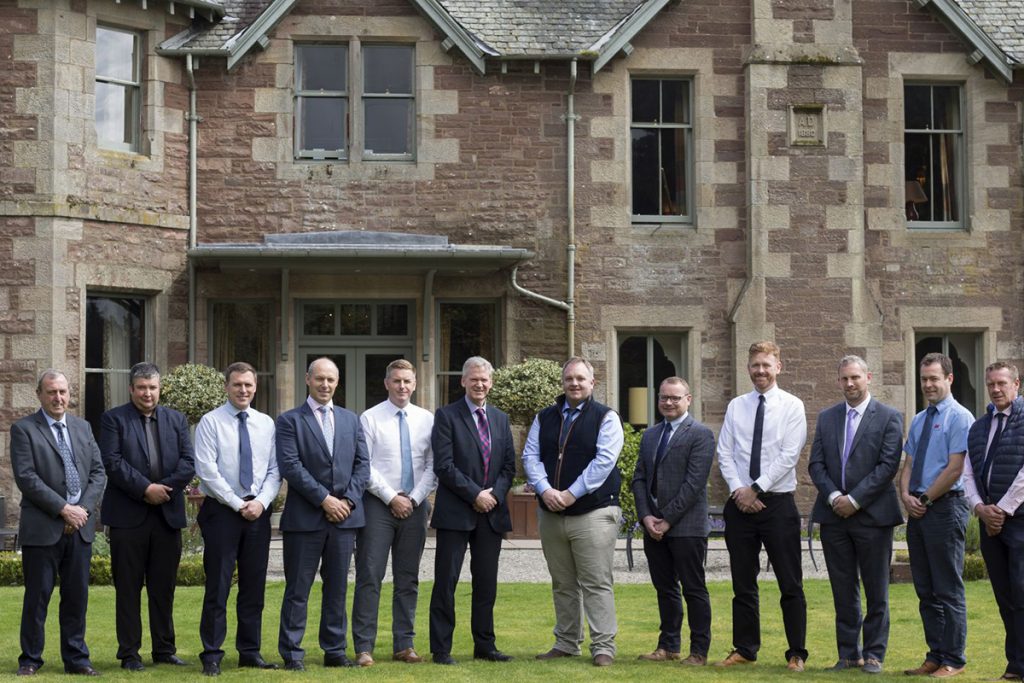![]()
In the last edition of UKPO Magazine we met and spoke with Callum Mackintosh, who to date, is the youngest and most radical President of The Scottish Plant Owners Association (SPOA).
The SPOA is a trade association that is providing a strengthening voice, for over 350 owner operators and hirer members who are working in the construction industry north of the border.
A voice, Callum Mackintosh, will help to unify in an industry that is facing a growing number of challenges from a political, economic and social perspective.
In this second part of the interview, we find out more…
I started by asking with a changing political landscape in Scotland, how the relationship with the UK Government impacted planning and decision making on matters of strategic significance, for Scottish contractors and hirers.

Callum gave a recent example.
“During late 2019 and early 2020 Transport Scotland were actively engaging with stakeholders on how to transition NRMM (Non-Road Mobile Machinery) from Diesel to low or zero emission in a sustainable manner and the SPOA were keen to participate in the discussion.
In the 2020 budget, the then Chancellor Rishi Sunak, announced that the treasury wished to reform Red Diesel entitlement and would remove the construction sectors entitlement, but would consult with industry in advance.
The difference was that HMT made the decision to consult the industry AFTER they made their mind up to remove the entitlement.
Compare that to Scottish Government, via Transport Scotland, who engaged with the industry first to plan a sustainable transition together.
Unfortunately, what HMT says goes and so any plan at Scottish Government level was futile.
It was during the HMT consultation that the SPOA made a proposal for a 7-year road map into sustainable fuels and zero emission plant. This however was completely disregarded without firm justification, leaving the industry to believe the reform was nothing short of a tax grab.”
It was clear the level of angst that this caused the Association, with a conclusion being drawn that a plan that was seen to be good for the Scottish industry and good for the Scottish environment was being undermined.
We moved away from the politics and looked at the outlook for major infrastructure projects in the country in what over the coming year or so might be a tighter market.
Callum commented:
“Despite £2.8bn worth of infrastructure projects due to start in the next two years there is nothing meaty in the pipeline. The recent Queensferry Crossing and Aberdeen West Peripheral Route (AWPR) jobs were a great boost to both our industry and the economy. Whilst we don’t need bridges on that scale every year, there is still scope for major infrastructure improvements across Scotland”.


Callum went on to discuss that many previous major projects in the country were often part funded by the EU, as clearly the UK is not in a position to benefit from this investment, major projects may become less frequent.
It was an interesting comparison, as in England with HS2 and Hinckley Point to name but two, major projects may perhaps soften the depth of any potential challenges to the market. This point was not lost on Callum who highlighted that this in itself had a detrimental knock-on effect, as Scottish labour was indeed attracted by this work and has migrated south.
The SPOA indeed lobbies hard to the Scottish Government as Callum explained, “The Association and I have sat with many a Scottish minister, conveying the detriment to the national construction economy, when tendered projects are not awarded to Scottish contractors and/or British consortiums. Subsequent overseas contractors that are awarded, often arrive with their own plant, their own teams and live on the project, providing little if any value to the Scottish economy”.
In conclusion and to summarise I asked Callum what the benefits of joining the SPOA were, here is what he said:
“The primary objective of the Association is to give Scottish businesses a stronger coordinated voice, a philosophy, that enables a dialogue and interaction at the highest level in Government to make positive change. We may not be able to change all the thing we wish, all of the time, but we will be in the room to advise, collaborate and build relationships. All of which allows the facts, not emotion or hearsay to be feedback to our members.”
Callum recognises what needs to be done and what success looks like. There are no platitudes or cliches in that recognition. It struck me that members of and the companies looking to join the SPOA will see improvements in the fundamentals of communication and networking, all to help members get the very best out of their association.
With a hither to unrecognised realisation that just because members are in the club, everything will get better. The hard work has begun and the transformation is underway, there is little doubt that the Scottish Plant Owners Association is strengthening its voice.























